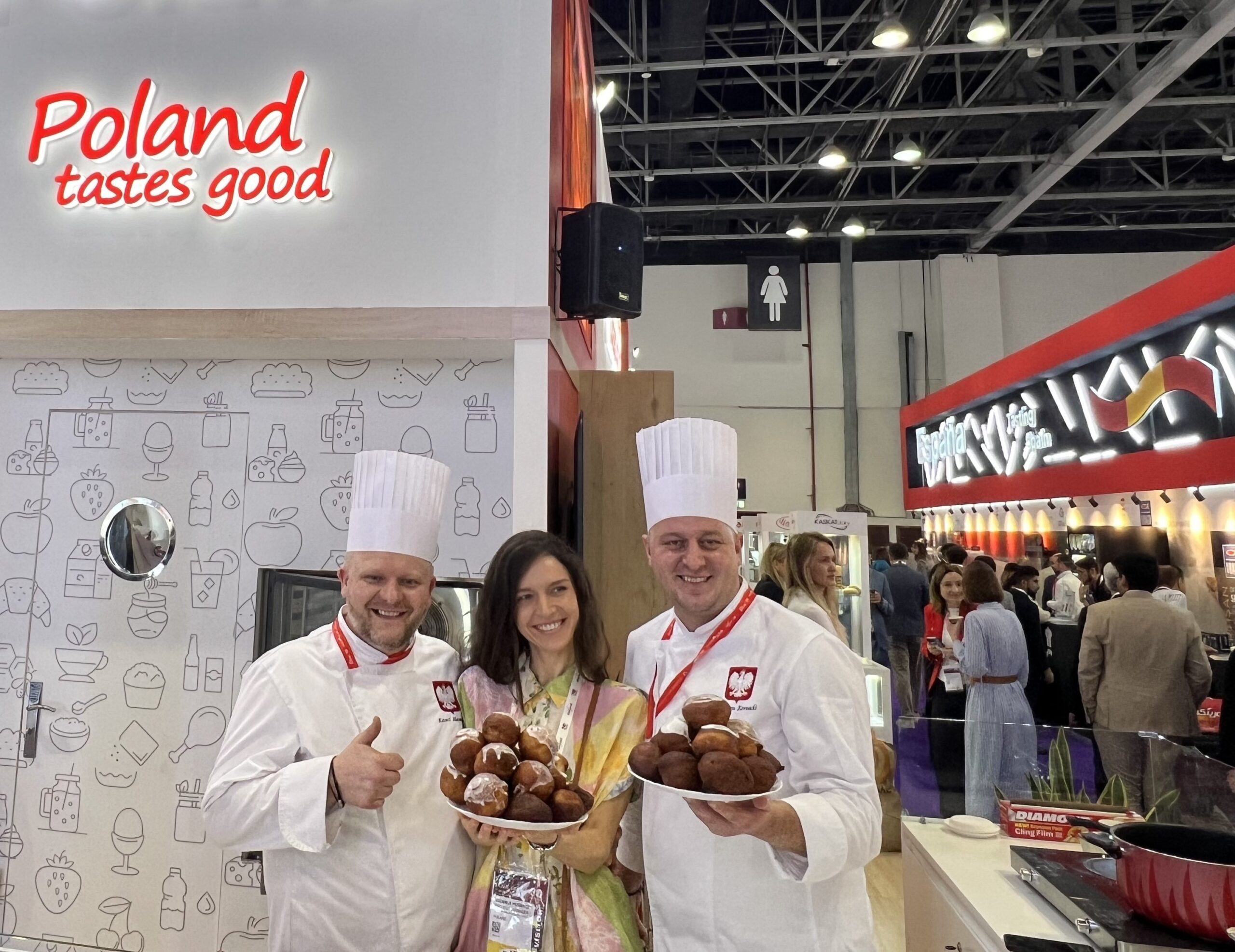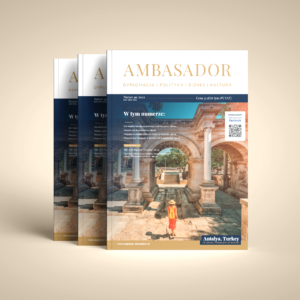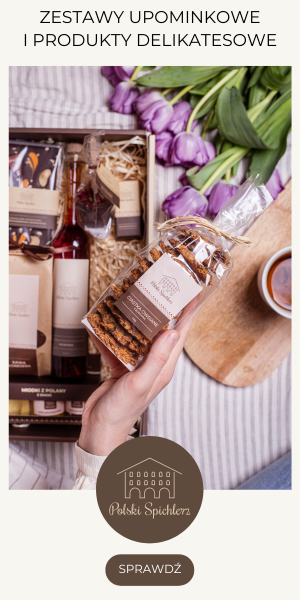Polish cuisine, with its rich tapestry of flavours, historical depth and cultural tradition, constitutes a significant element in the promotion of our country abroad. The National Support Centre for Agriculture (KOWR) conducts extensive activities aimed not only at increasing the export of Polish foodstuffs, but also indirectly promoting Poland’s culinary heritage on the international stage. The Polish agri-food sector has recorded remarkable successes in international markets in recent years. The value of Polish agri-food product exports reached an unprecedented level of €53.5 billion in 2024, accounting for 15.2% of total Polish exports. Throughout Poland’s 20 years of European Union membership, the value of agri-food product exports has increased more than elevenfold. Moreover, this sector generates a consistent surplus in foreign trade – in 2024, the positive balance amounted to €17.9 billion. Food exports thus represent an essential source of revenue for the Polish economy and contribute significantly to the stabilisation of the country’s trade balance.
These impressive results stem from the high quality ofPolish products and the vitality demonstrated by Polish entrepreneurs, but also from the systematic support activities conducted by institutions such as the National Support Centre for Agriculture. The comprehensive promotional activities conducted by KOWR encompass, in particular, the organisation of national stands at international trade fairs (with 24 events planned for 2025), trade missions, and informational-analytical support for exporters. Media engagement in industry publications and social media platforms, along with the organisation of culinary demonstrations and tastings, constitute equally important elements. Additionally, by implementing activities within the Sectoral Promotion Programme and coordinating and supporting projects financed through EU funds and the Promotion Funds for Agri-Food Products, KOWR creates a synergistic platform for the expansion of Polish food into international markets.
Trends and Challenges
Our country has for centuries been the ‘granary of Europe’, exporting grain, fish, dried fruits, and numerous other products to various countries. This rich tradition is reflected in the contemporary success of Polish food in global markets. Modern Polish food represents a fusion oftradition, innovation, and years of adaptation to the evolving expectations of both Polish consumers and international clients. Our flagship export products, such as poultry meat, apples, and dairy products, are deeply rooted in Polish culinary tradition whilst simultaneously meeting the highest standards of quality and safety.
Polish products reach virtually every country worldwide, and Polish ingredients are frequently utilised in popular dishes of global cuisine. A prime example is the mozzarella produced on a large scale in Poland, which is used not only domestically but internationally in that icon of Italian cuisine, pizza. Naturally, we aspire to present more such examples, and indeed tocreate conceptual synonyms – that is, if one wishes to prepare the finest version of tarte tatin, a classic of French cuisine, or an American apple pie, one should necessarily employ Polish apples, renowned for their exceptional flavour and aroma.
One of the intriguing challenges confronting those involved with Polish food is the identification and promotion of a Polish ramen. We seek dishes that are straightforward to prepare,visually appealing, and simultaneously capture the essence of Polish flavour. Concurrently, these would serve as additional Vehic les for building awareness of the merits of Polish products through the uniqueness of Polish cuisine.
For many, pierogi represent a natural candidate for the flagship dish of Polish cuisine on the international stage. They are versatile; one can fill them with a variety of ingredients, from traditional Polish fillings to local ingredients available in various parts of the world. They can serve as our culinary calling card, although dishes similar to our pierogi exist in many countries – which has frequently prompted fascinating discussions about common roots and mutual inspirations.
Recognising the richness of Polish cuisine, we do not limit ourselves solely to pierogi. KOWR’s activities frequently feature, among others:
- Pączki (doughnuts) – combining the richness of traditional flavour with extensive possibilities for combining with fillings from around the world, from rose petal jam to Singaporean pandan kaya paste.
- Kluski śląskie (Silesian dumplings) or placki ziemniaczane (potato pancakes) – simple to prepare, with diverse accompaniments ranging from traditional goulash to fusion toppings.
- Gołąbki (Cabbage rolls with meat or mushroom filling) – a classic Polish dish combining simplicity of ingredients with sophistication of flavour based on spices and the preparation process.
We can also seek success on the global culinary stage with new dishes that combine Polish export products in a flavoursome, modern form, such as apple and quark tart.
Polish Cuisine – A Bridge Between Tradition and Innovation
Our cuisine has always been receptive to various influences and inspirations. This characteristic may prove the key to its international success. By combining respect for tradition with openness to new culinary trends, Polish cuisine has the opportunity to secure its place at global tables.
The export support provided by KOWR is systematic and long-term in nature. We have been operating in many countries for years, broadening consumer awareness of Polish food whilst also supporting successive Polish companies in food exportation. In planning and implementing our activities, we not only respond to exporters’ needs by continuously analysing reported requirements, but also actively seek new opportunities for developing Polish food exports.
Proactive engagement is particularly crucial in the face of global challenges confronting Polish exporters, such as climate change, geopolitical situations, international conflicts, and evolving consumer demands.
KOWR continues its mission of building bridges between traditional Polish cuisine and modern consumer tastes worldwide. Through these efforts, the phrase “Poland Tastes Good” acquires an increasingly broad, international significance.
Polish food, with its unique character, high quality, and rich history, is becoming an essential element of our national export identity. And KOWR, through its promotional activities, ensures that this culinary treasure finds its rightful place at global tables.



Sledź nas na: